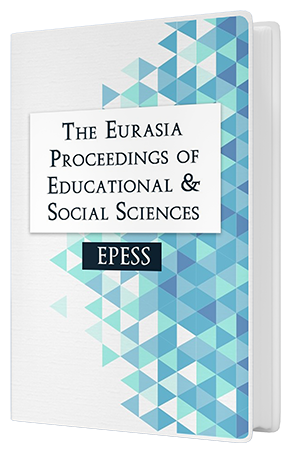REVIVAL OF DEMONSTRATION EXPERIMENTS IN SCIENCE EDUCATION
Keywords:
constructivism, demonstration experiment, science educationAbstract
Experiments play an essential role in science research and also in science education. The first experiments were part of science teaching/learning at universities already at the beginning of the nineteenth century. The effectiveness of science education through students engaging in practical activities was preferred by some but doubted by others. The contemporary constructivist approach in science education promotes students’ experimentation because students have a greater share in activity and inquiry. Not only are student experiments important for teaching/learning science, but also demonstration experiments play an important role as well. The goal of our design-based research is to answer the question: Does the demonstration experiment have a place in today's constructivist science teaching/learning? What innovations are appropriate for the implementation of demonstration experiments in today’s constructivist science teaching/learning? As a result of our design-based research we found several principles for the effective implementation of demonstration experiments in teaching/learning science: an emphasis on the objective of demonstration experiments, controlled observation of demonstration experiments, and development of students´ thinking and creativity in demonstration experiments. The appropriate implementation of these demonstration experiments in science education can lead to a better understanding of the nature of experiments, as well as to a better understanding of science concepts, phenomena, science processes and science laws and to increasing the required educational objectives. The next student gain is acquaintance with the experimental skills needed for their own meaningful experimentation under the guidance of a teacher. These skills include the ability to observe consistently and accurately, to use the apparatus correctly, to measure, to create and to test hypotheses of observed phenomena, to analyse results of experiments and to draw conclusions.Downloads
Published
Issue
Section
License
Copyright (c) 2015 The Eurasia Proceedings of Educational and Social Sciences

This work is licensed under a Creative Commons Attribution-NonCommercial-ShareAlike 4.0 International License.
The articles may be used for research, teaching, and private study purposes. Any substantial or systematic reproduction, redistribution, reselling, loan, sub-licensing, systematic supply, or distribution in any form to anyone is expressly forbidden. Authors alone are responsible for the contents of their articles. The journal owns the copyright of the articles. The publisher shall not be liable for any loss, actions, claims, proceedings, demand, or costs or damages whatsoever or howsoever caused arising directly or indirectly in connection with or arising out of the use of the research material. All authors are requested to disclose any actual or potential conflict of interest including any financial, personal or other relationships with other people or organizations regarding the submitted work.




